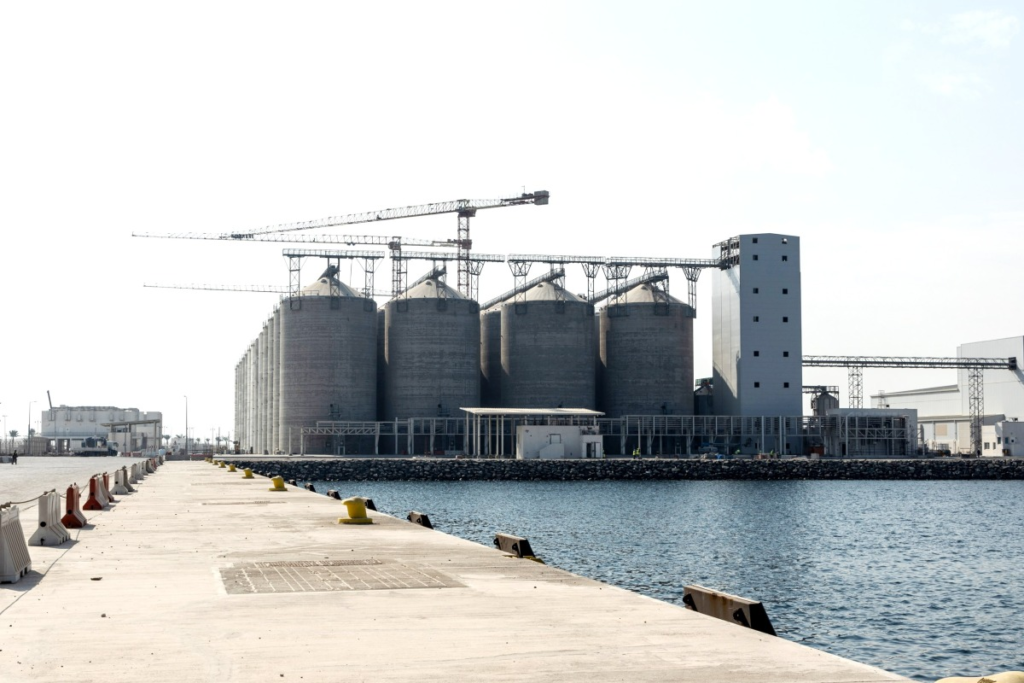Food imports play a vital role in Qatar’s journey toward food security. The nation, known for its rapid economic development, has taken a proactive approach to ensure the stability of its food supply. In recent years, global events, including trade disruptions and climate change, have made food security a pressing concern for many countries. For Qatar, which relies heavily on imports due to its desert climate and limited agricultural capacity, diversification of food sources has become an essential strategy.
The Qatari government recognizes that depending on only a few suppliers can leave the nation vulnerable to shortages and price fluctuations. By widening its network of international partners, Qatar aims to protect its population from potential crises and create a resilient food system.
Expanding Global Partnerships
To strengthen its food security, Qatar has established partnerships with multiple countries across different continents. This diversification ensures that any disruption in one region does not significantly impact the overall supply chain. From staple grains and dairy products to fresh fruits and vegetables, Qatar sources its food from a wide array of countries in Asia, Europe, Africa, and the Americas.
By negotiating long-term contracts with reliable exporters, Qatar is not only securing a steady supply but also building relationships that could facilitate knowledge transfer, joint ventures, and investment opportunities in agriculture. This approach emphasizes stability and foresight, positioning Qatar as a nation prepared for future challenges.
Investment in Local Agriculture
While imports remain a cornerstone of Qatar’s food strategy, the government has also invested heavily in boosting local production. Advanced technologies such as hydroponics, vertical farming, and greenhouse cultivation are being employed to grow vegetables and fruits within the country.
These initiatives serve multiple purposes: they reduce dependency on imports, lower transportation costs, and create employment opportunities in the agricultural sector. By combining local production with diversified imports, Qatar is creating a balanced food system that can withstand international market pressures and environmental challenges.

Strategic Stockpiling and Supply Management
Another key element of Qatar’s food security plan is strategic stockpiling. The country maintains reserves of essential food items to mitigate risks from sudden shortages or price spikes. These reserves are carefully monitored and managed to ensure they remain sufficient and fresh.
Supply chain management is also crucial. Qatar invests in state-of-the-art storage facilities, cold chain logistics, and distribution networks to ensure that imported goods reach consumers efficiently and safely. By controlling every stage of the supply chain, the country reduces waste and enhances food availability.
Embracing Technology and Innovation
Technology plays a pivotal role in Qatar’s food diversification strategy. From AI-driven demand forecasting to smart logistics solutions, innovative tools help the nation anticipate market trends and respond quickly to disruptions.
Additionally, research and development in agriculture and food technology allow Qatar to explore alternative protein sources, improve crop yields, and develop resilient supply chains. This focus on innovation demonstrates a forward-thinking approach to food security, ensuring that the country remains adaptable in an ever-changing global landscape.
Enhancing Sustainability
Diversifying food import sources also aligns with Qatar’s sustainability goals. By sourcing from multiple regions and investing in environmentally friendly local agriculture, the country minimizes the ecological footprint of its food system. Sustainable practices, such as efficient water use, renewable energy in farming, and reducing transportation emissions, contribute to a greener and more secure food supply.
This dual approach diversification of imports and sustainable local production not only strengthens food security but also reflects Qatar’s commitment to environmental responsibility.

Building Regional Cooperation
Qatar is not focusing solely on global partnerships; it is also enhancing regional collaboration. Working with neighboring Gulf countries, Qatar explores joint investment opportunities in agriculture, shared food reserves, and cooperative logistics.
Regional cooperation reduces dependency on distant suppliers and allows countries to support each other during emergencies. By fostering a sense of shared responsibility and resilience, Qatar strengthens both its food security and regional stability.
Benefits for Consumers and the Economy
The diversification of food imports has direct benefits for consumers in Qatar. It ensures stable prices, continuous availability of essential products, and access to a variety of high-quality foods. Moreover, a reliable food system builds public confidence and contributes to social stability.
From an economic perspective, diversified imports and local agricultural development create jobs, stimulate investment, and enhance trade relations. Qatar’s strategy not only addresses immediate food needs but also strengthens the country’s long-term economic resilience.
Preparing for Future Challenges
Qatar’s commitment to food security is a proactive response to a rapidly changing world. Climate change, geopolitical tensions, and global supply chain vulnerabilities are ongoing concerns that demand forward-looking strategies.
By combining diversified imports, local production, technology, sustainability, and regional collaboration, Qatar has created a robust framework that can withstand global shocks. The country’s efforts serve as a model for other nations seeking to balance food security with economic growth and environmental responsibility.
Conclusion
Qatar’s approach to boosting food security demonstrates strategic foresight, innovation, and resilience. By diversifying import sources and investing in local production, the country ensures a stable, sustainable, and efficient food supply.
As global challenges continue to evolve, Qatar’s multi-pronged strategy positions it as a nation prepared to meet both current and future food demands. Through collaboration, technology, and smart planning, Qatar not only secures its food future but also sets an example for others striving to achieve food security in an unpredictable world.
Do follow Gulf Magazine on Instagram.
Also Read – Engineering Qatar’s Future: A Shared Vision of Innovation and Excellence



